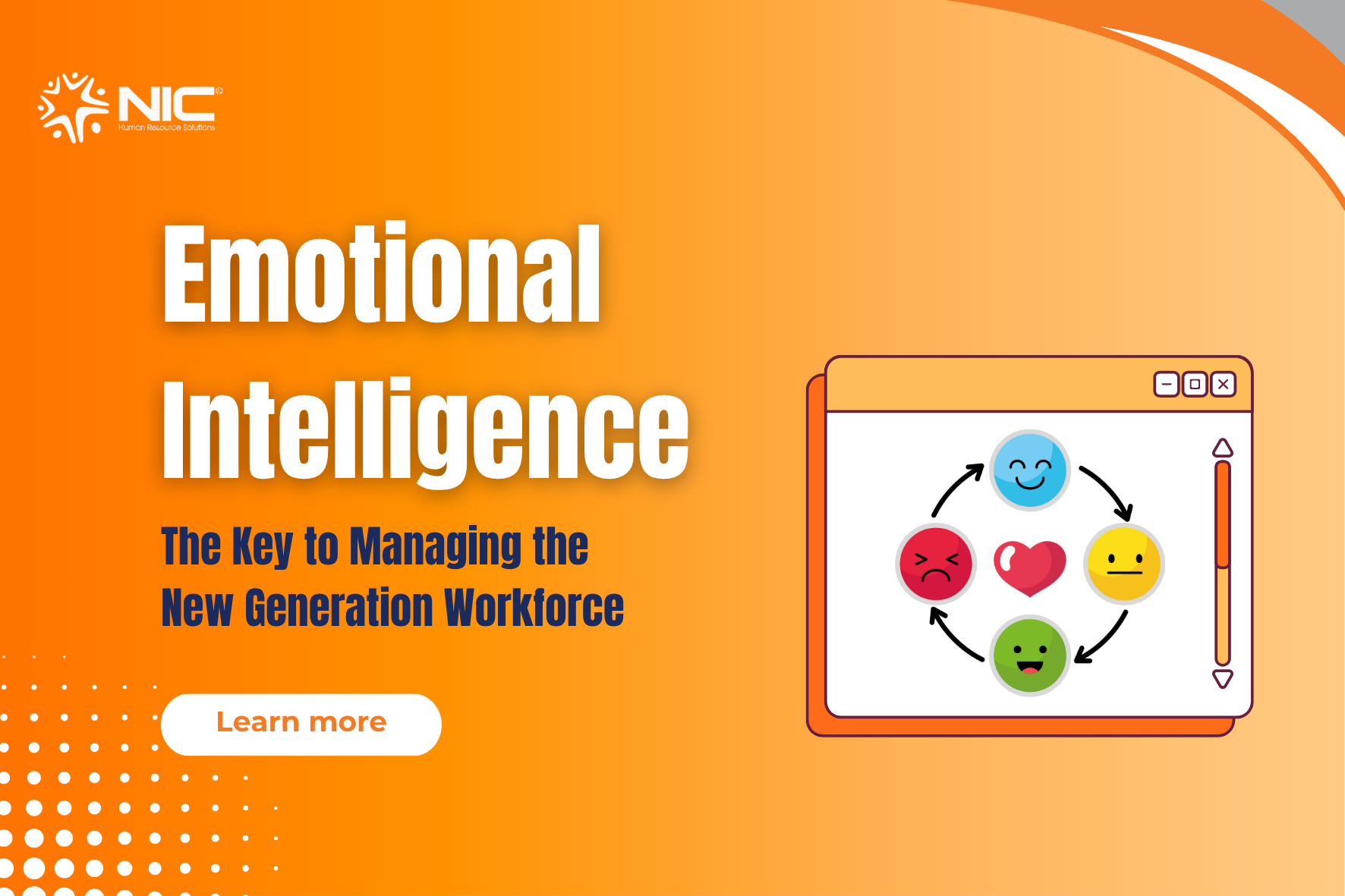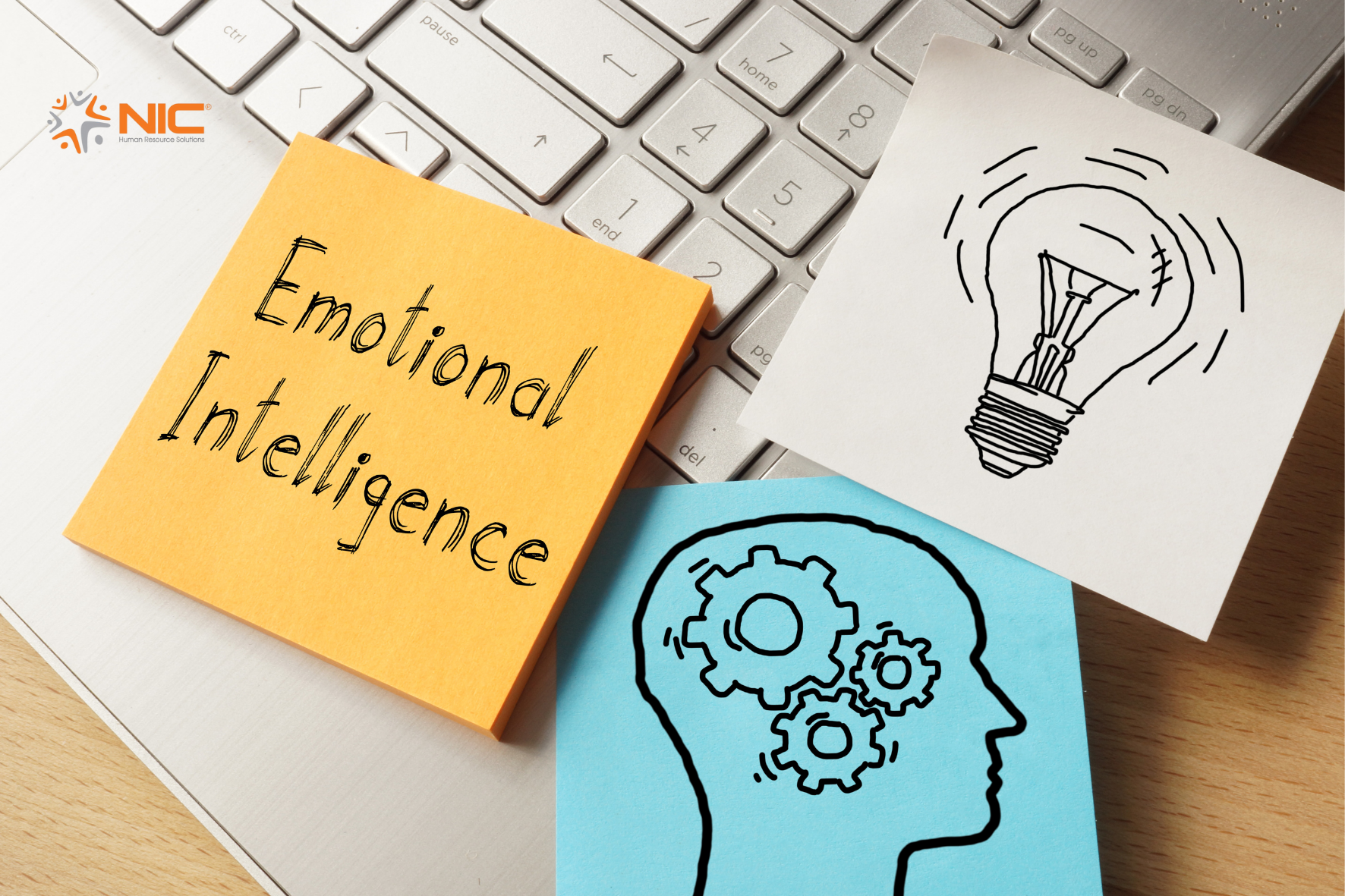Emotional Intelligence: The Key to Managing the
New Generation Workforce
23/07/2025
Generational Shift in the Workforce: When Gen Z Takes Over
Generation Z (born 1997–2012) is rapidly becoming the core workforce in many organizations. Growing up in the digital age, they have quick access to information and hold very different expectations compared to previous generations—especially when it comes to the workplace environment, relationships with leadership, and the meaning of work. Rather than just seeking job stability, Gen Z values flexibility, openness, and an environment that emphasizes personal values and emotions. This requires modern leaders not only to excel professionally but also to develop Emotional Intelligence (EI) to connect with, inspire, and retain young talent.

What Is Emotional Intelligence?
Emotional Intelligence is the ability to recognize, understand, and manage one’s own emotions as well as those of others. Leaders with high EI often demonstrate empathy, active listening, emotional regulation, and the ability to foster positive workplace relationships.

Why Do Leaders Need Emotional Intelligence to Lead Gen Z?
- Gen Z Values Empathy and Understanding
Unlike previous generations accustomed to rigid management styles, Gen Z prefers friendly workplaces where they feel heard and their emotions are respected. Leaders with strong EI can easily build trust and encourage open communication, fostering team cohesion. - Emotional Communication Is a Powerful Bridge
Gen Z prioritizes clarity and sincerity in communication. Emotionally intelligent leaders know how to convey clear messages without being cold, using words and actions to motivate and accompany their employees. - EI Helps Manage Conflict Effectively
With Gen Z’s strong personalities, workplace conflicts are inevitable. EI equips managers to remain calm, handle issues objectively and tactfully, and maintain a positive working environment. - Inspiring and Retaining Young Talent
Instead of commands, Gen Z wants inspiration. Leaders with EI know how to acknowledge contributions, offer praise at the right moment, and provide personal development paths. This not only improves performance but also enhances employee retention.
The 5 Core Elements of Emotional Intelligence in Leadership
- Self-awareness
Understanding one’s own emotions and reactions enables leaders to adjust their behavior effectively across various situations. - Self-regulation
The ability to control negative emotions and remain calm and professional, especially under pressure. - Motivation
High-EI leaders are self-motivated, goal-driven, and capable of inspiring others with long-term vision. - Empathy
The ability to step into others’ shoes, understand their emotions, needs, and expectations—something Gen Z particularly values in a superior. - Social Skills
Building positive relationships, resolving conflict effectively, and leading teams toward shared goals.
Strategies to Develop Emotional Intelligence for Managers
- Specialized EI Training & Coaching
Organizations should conduct Emotional Intelligence training programs for middle and senior managers to help them understand and practice emotional management skills. - Self-reflection & Regular Feedback
Encourage leaders to reflect on their management style and actively seek employee feedback for continuous improvement. - Build a Culture That Values Emotions
Create a safe work environment where people feel comfortable expressing emotions and are treated with respect—this fosters EI throughout the organization. - Practice Emotional Communication Daily
From small actions, such as offering timely praise and listening, to handling conflicts and emotional communication, a leadership style rooted in connection is shaped.

Business Benefits of Emotional Intelligence
- Stronger Internal Bonds: Teams work more effectively when they feel heard and understood.
- Improved Performance: Inspired employees are more proactive and committed.
- Lower Turnover: Positive relationships with leaders are a key factor in retaining Gen Z staff.
- Enhanced Employer Brand: A company culture based on modern and human-centric leadership attracts top talent.
Connect with NIC Global’s HR Consulting & Training Services
NIC Global provides end-to-end HR solutions, including:
- Emotional Intelligence leadership development consulting
- Customized EI training programs for managers
- Corporate workshops and coaching sessions
- Outsourced HR services to help businesses flexibly manage young talent
Emotional Intelligence isn’t an inborn trait—it’s a skill that can be learned. In the Gen Z era, EI should be a core part of every company’s human capital strategy.
To become a leader Gen Z can trust and follow, managers must go beyond authority and experience. They must understand, inspire, and connect through real emotions. Emotional Intelligence is the key to unlocking that door.
Start cultivating EI today—for a future powered by young potential and a resilient organization.
For contact and support:
Facebook: NIC Global – Human Resource Solutions
LinkedIn: NIC Global Sourcing JSC
Website: www.nicvn.com
Email: info@nicvn.com
Hotline: (+84) 981.23.43.76
Address:
- Hanoi Office: No. 3A Thi Sach, Pham Dinh Ho Ward, Hai Ba Trung District, Hanoi, Vietnam
- Ho Chi Minh City Office: Dakao Center Building, 35 Mac Dinh Chi, District 1, Ho Chi Minh City, Vietnam
See more:
Payroll service
Staffing service
EOR service





